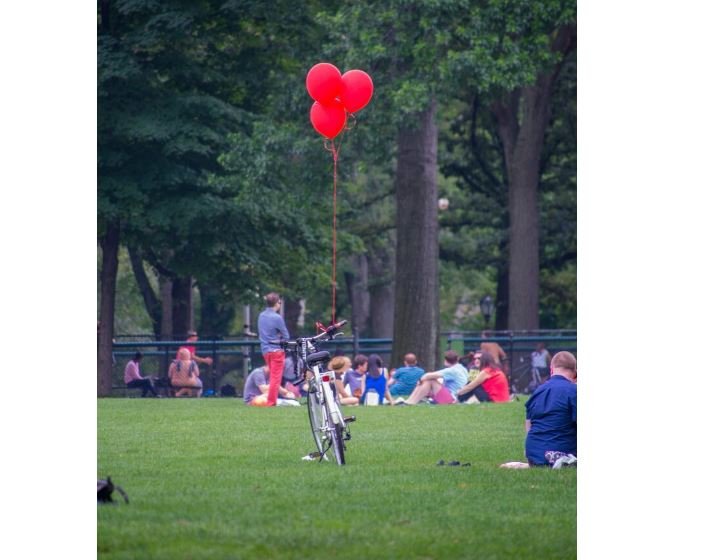
An event held at Boston College on a chilly October evening accomplished something remarkably successful: it made room for polite discussion on a hotly debated subject: what marriage is. The forum, which was organized by the Thomas More Society, included Ryan T. Anderson of The Heritage Foundation, whose opinions on marriage caused excitement and anxiety among the students. Opinion columns expressed concerns, Facebook events demanded a protest, and flyers were distributed. However, the outcome was not the altercation that some had feared, but rather a discussion that students continued long after it had officially ended.
College campuses have evolved into contentious arenas for ideological expression in recent years. However, something very different happened this night. The tone remained polite in spite of divergent opinions and the anxiety before the event. Initially protesting students stayed to listen. Even those who disagreed were intrigued by Anderson’s case for traditional marriage, which was based on child-centered public policy, rather than hostile. This change in tone was especially helpful in demonstrating that disagreement need not turn into animosity.
Key Facts About the Dialogue on Marriage at Boston College
| Detail | Description |
|---|---|
| Event Title | Marriage Forum at Boston College |
| Featured Speaker | Ryan T. Anderson, William E. Simon Fellow at The Heritage Foundation |
| Hosting Group | Thomas More Society, Boston College |
| Student Response | Protests, packed attendance, extended Q&A |
| Main Topic | Marriage as a union between a man and a woman |
| Controversy Level | High before event, surprisingly civil during discussion |
| Media Coverage | The Heights, The Gavel, Daily Signal |
| Institutional Support | BC’s Jesuit principles encourage dialogue and engagement |
| Broader Impact | Encouraged reconsideration, tolerance, and ongoing conversation |
Anderson explained his position that the state’s interest in marriage is mainly related to its function in promoting stable family structures for children. Although not all students agreed with the message, his measured, fact-based, and sincere delivery promoted meaningful engagement. It inspired a level of intellectual benevolence that is frequently absent from public discourse. By the end of the night, a large number of students were still there, carrying on conversations in groups and nooks, curiosity taking the place of conflict.
Boston College, which has Jesuit roots, has long placed a strong emphasis on helping students develop not only intellectually but also morally and spiritually. In this regard, the forum was a perfect fit with the institution’s ideals of inclusive discourse and critical thinking. BC has continuously supported spaces where students are encouraged to express their beliefs—in a respectful and honest manner—through initiatives like the Council on Community Formation, the Clough School’s interreligious engagement programs, and restorative practice models.
The structure of the night was especially inventive. Students were not asked to agree with Anderson at the event. It prompted them to reflect. Amazingly enough, they did. “Does that mean we should ostracize, criticize, or ignore those with differing views?” asked a student who was quoted in The Heights. The question was representative of the evening’s real success because it was asked by a peer rather than a speaker. Not in agreement, but in discussion.
Remote learning disrupted these kinds of natural campus discussions during the pandemic. Numerous students discovered that they had to navigate relationships, identity, and purpose alone. Events like this have gained new significance in the post-pandemic era of campus life. They are profoundly formative, therapeutic, and reflective in addition to being academic. For a lot of people, this event was more about how to disagree politely than it was about policy.
Boston College has made significant progress in addressing difficult subjects by incorporating restorative practices. BC has been able to create space for both safety and conviction strength through community partnerships, such as wellness centers and LGBTQ+ affinity groups. Actually, BC’s Center for Student Wellness offers tools for having authentic conversations about identity, boundaries, and relationships—a framework that was particularly helpful during the marriage conversation.
At the national level, marriage-related conversations have become more politicized and frequently reduced to catchphrases rather than meaningful content. However, organizations such as Boston College are providing a model for resolving this conflict in a calm, brave, and caring manner. The goal of these discussions is to understand disagreement, not to eradicate it. They aim to restore our group’s capacity for thoughtful engagement, which has become increasingly scarce.
It’s interesting to note that this isn’t limited to campuses. The capacity for nuanced opinion has been greatly diminished in public life, from legislative hearings to celebrity interviews. For instance, celebrities like Kristen Bell have acknowledged the traditional structure that influenced their upbringing while simultaneously using their platforms to support contemporary marriage expressions. This blending of traditional and modern viewpoints reflects the environment Boston College is cultivating, which is one in which various generations, ideologies, and identities converge—not in a negative way, but in a positive way.
There is always a fine line to walk between upholding core principles and accepting different interpretations in the context of higher education, particularly at faith-based institutions. In order to manage this tension, Boston College is inviting difficult conversations rather than avoiding them. Additionally, they are demonstrating how higher education can take the lead in responsibility as well as research and rankings through events like this forum.
Working together with students, faculty, and alumni, BC has established a culture in which participation is expected rather than feared. The success of the event was demonstrated even by its detractors. They arrived. They paid attention. They asked. And by doing this, they contributed to reaffirming the university’s purpose, which is to seek the truth even when it causes discomfort.
Forums like this provide more than just academic value; they provide clarity for students navigating their own beliefs about identity, marriage, love, and purpose. They provide the chance to grow intellectually while maintaining emotional stability. They give young adults the opportunity to pose challenging queries about people—and their own position within them—rather than just policies.
In the last ten years, the discourse surrounding marriage has changed drastically. New conceptual frameworks have been developed as a result of personal experiences, cultural changes, and legal modifications. However, the ability to openly discuss those frameworks is still crucial. Boston College has provided an example of what can happen when disagreement is handled with dignity by reviving conversation rather than avoiding it.











